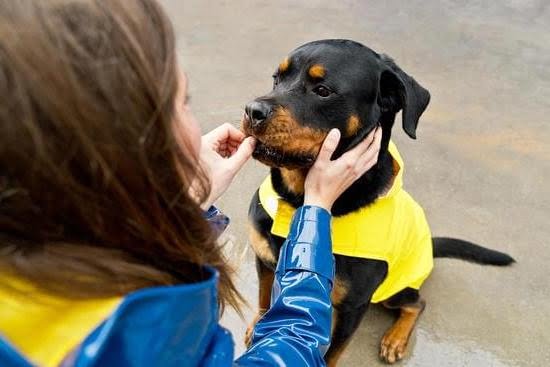Have you ever wondered how to train a dog to fetch antlers? Antler retrieval is an exciting and useful skill that can be taught to your canine companion, providing both mental stimulation and physical exercise. In this article, we will explore the process of training your dog to find and retrieve antlers, offering valuable tips and techniques for success.
Antler retrieval serves a dual purpose, as it not only provides an enjoyable activity for your dog but also aids in the collection of shed antlers. Whether for recreational purposes or conservation efforts, teaching your dog to find antlers can be a rewarding experience for both of you. With the right approach and training methods, you can cultivate this ability in your pet and strengthen the bond between you.
In the following sections, we will delve into various aspects of antler retrieval training, starting with selecting the suitable dog breed for this task. From basic obedience skills to advanced techniques and safety considerations, we will cover everything you need to know about training your dog to fetch antlers. So, let’s embark on this journey of discovery and learning together.
Choosing the Right Dog Breed for Antler Retrieval Training
When it comes to training a dog to fetch antlers, choosing the right breed is crucial for success. Not all dogs have the natural instincts or physical capabilities to excel in antler retrieval. The ideal breeds for this type of training are those with a strong sense of smell, high energy levels, and an innate desire to retrieve objects. Common breeds used for antler retrieval training include Labrador Retrievers, German Shorthaired Pointers, Golden Retrievers, and Boykin Spaniels.
Labrador Retrievers are known for their intelligence and eagerness to please, making them excellent candidates for antler retrieval training. Their strong sense of smell and gentle mouth make them well-suited for this task. Similarly, German Shorthaired Pointers are known for their athleticism and hunting abilities, making them great for antler retrieval training. These dogs thrive on activity and stimulation, which is essential for successful training.
Golden Retrievers are another popular choice due to their gentle nature and love for retrieving objects. Their loyal and friendly disposition also makes them great companions during hunting expeditions. Lastly, Boykin Spaniels are small yet hardy dogs known for their enthusiasm and determination in retrieving tasks. Regardless of the breed chosen, it is important to consider the dog’s individual personality, as some may have a stronger drive and aptitude for fetching than others.
Basic Training Techniques for Dog Obedience and Discipline
Establishing Trust and Leadership
The key to successful antler retrieval training is to build a strong foundation of trust and leadership with your dog. This means establishing yourself as the pack leader through consistent and confident behavior. Dogs are naturally inclined to follow a strong leader, so it’s important to set clear rules and boundaries from the beginning of training. Use positive reinforcement to reward good behavior and show your dog that you are a fair and trustworthy leader.
Basic Obedience Commands
Before diving into antler retrieval training, make sure your dog has mastered basic obedience commands such as sit, stay, come, and heel. These commands will form the basis of communication between you and your dog during the training process. Consistent obedience to these commands will also ensure that your dog is under control at all times, especially when out in the field searching for antlers.
Leash Training
Proper leash training is essential for any type of dog training, including antler retrieval. Teach your dog to walk calmly on a leash without pulling or lunging. This not only ensures safety during outdoor activities but also establishes good behavior and discipline in your canine companion.
Start by using positive reinforcement whenever your dog walks nicely on the leash, gradually increasing the duration of walking without pulling. With patience and consistency, your dog will learn to walk obediently by your side, ready for antler retrieval training adventures.
Establishing a Solid Foundation for Fetching Training
In order to successfully train a dog to fetch antlers, it is essential to establish a strong foundation for fetching training. This begins with basic obedience and discipline training. Teaching your dog commands such as “sit,” “stay,” and “come” is crucial before progressing to more advanced tasks like retrieving antlers.
It is important to start with short fetching exercises in a familiar environment before introducing the scent of antlers. Use a familiar toy or object for initial fetching practice, gradually increasing distance and difficulty. This will help build your dog’s confidence and understanding of the fetching concept before moving on to the next stage of training.
Consistency is key when establishing a solid foundation for fetching training. Set aside regular training sessions each day to work on obedience, discipline, and basic fetching skills. This will help your dog understand what is expected of them and reinforce the importance of the training process.
| Foundation Training Tips | Benefits |
|---|---|
| Start with basic obedience commands | Builds trust between dog and owner |
| Begin with short fetching exercises | Increases dog’s confidence |
| Be consistent with training sessions | Reinforces expectations for the dog |
Introducing the Scent of Antlers to Your Dog
When it comes to training a dog to fetch antlers, introducing the scent of antlers to your dog is a crucial step in the process. Before you begin this part of the training, it’s important to understand that dogs have an incredibly keen sense of smell. Therefore, introducing them to the scent of antlers is not only beneficial for their training but also stimulating for their senses.
To introduce the scent of antlers to your dog, you can start by using shed antler scent products that are specifically designed for this purpose. These scents mimic the natural smell of shed antlers, making them familiar with what they will be searching for during hunting or retrieval. You can use these scents on dummy antlers or other objects during training sessions to help your dog associate the scent with the act of retrieving.
Additionally, it’s important to gradually increase the exposure of your dog to the scent of antlers so that they become more adept at identifying and locating it. Start with short training sessions and gradually increase both the duration and complexity of the exercises. Eventually, your dog will develop a strong association between the scent and fetching, setting them up for success in actual hunting or retrieval scenarios.
Positive Reinforcement and Reward-Based Training Methods
When it comes to training your dog to fetch antlers, positive reinforcement and reward-based training methods are essential for success. These techniques involve using praise, treats, or toys to encourage desired behaviors and help your dog understand what is expected of them during the training process. Here are some effective positive reinforcement methods for teaching your dog to retrieve antlers:
- Clicker Training: Using a clicker to mark the moment your dog performs the desired behavior can be an effective way to communicate with your pet during training. Pairing the click with a reward, such as a treat or praise, will help reinforce the behavior and make it more likely to be repeated.
- Treat Rewards: Giving your dog a small, high-value treat as a reward for successfully fetching an antler will create a positive association with the behavior. It’s important to use treats that your dog finds especially motivating and appealing, as this will increase their willingness to engage in the training process.
- Verbal Praise: Dogs thrive on verbal praise from their owners, so be sure to enthusiastically praise your dog each time they successfully retrieve an antler. Using a happy tone of voice and showering them with praise will let them know they’ve done well and encourage them to continue performing the behavior.
By incorporating these positive reinforcement and reward-based training methods into your antler retrieval training routine, you can effectively communicate with your dog and motivate them to learn and excel in their fetching abilities. Remember to be patient, consistent, and generous with rewards to help your dog become proficient in this enjoyable activity.
Advanced Antler Retrieval Techniques and Challenges
Once your dog has mastered the basic training techniques for obedience and fetching, it’s time to move on to advanced antler retrieval techniques. This stage of training will involve introducing more complex scent tracking and honing your dog’s natural hunting instincts. Here are some advanced techniques to help your dog become an expert antler retriever:
- Introduce Distractions: Start by introducing distractions during the fetching process, such as other scents or noises. This will help your dog focus on the specific scent of antlers amidst other environmental stimuli.
- Long-Distance Retrieval: Gradually increase the distance from which you throw the antlers for your dog to retrieve. This will challenge their tracking abilities and strengthen their endurance.
- Variable Terrain Training: Train your dog to retrieve antlers in different types of terrain, such as woods, fields, or water bodies. This will prepare them for real-life hunting situations with varying obstacles.
Challenges may arise during the advanced training phase, such as difficulties in scent differentiation, distraction susceptibility, or stamina issues. It’s important to be patient and persistent in addressing these challenges through consistent training sessions and positive reinforcement.
As you progress through advanced antler retrieval training with your dog, celebrate every small milestone they achieve. The bond between you and your canine companion will only grow stronger as you work together towards success in this specialized skill. Keep a record of your training journey and enjoy the unique experience of bonding with your dog through the art of antler retrieval.
Troubleshooting Common Training Issues
Training a dog to fetch antlers can be a fun and rewarding experience, but it also comes with its fair share of challenges. One common issue that many dog owners encounter during antler retrieval training is the lack of interest or motivation in their furry companions.
This can be frustrating, especially if your dog is typically eager to learn and please you. In such cases, it’s important to remember that every dog is different, and what works for one may not work for another.
Another common training issue when teaching a dog to fetch antlers is the tendency for dogs to become easily distracted during the training process. This is particularly true for breeds that have a high prey drive or are easily excitable.
To address this issue, it’s essential to create a training environment that minimizes distractions and keeps your dog focused on the task at hand. Using positive reinforcement techniques such as treats and praise can also help keep your dog engaged and motivated during training sessions.
Finally, some dogs may struggle with the actual act of picking up and carrying an antler due to its size and weight. This is especially true for smaller breeds or those with less physical strength. In such cases, it’s crucial to start small and gradually build up your dog’s strength and confidence through consistent practice and positive reinforcement.
Additionally, using appropriately sized antlers during training can help prevent frustration and ensure a positive learning experience for your canine companion. By addressing these common training issues with patience, consistency, and creativity, you can overcome obstacles in teaching your dog to fetch antlers and enjoy a successful hunting partnership together.
Safety Considerations for Antler Hunting With Dogs
Outdoor Hazards
When training your dog to fetch antlers, it’s important to consider the potential outdoor hazards that could impact both you and your canine companion. From rough terrains to wildlife encounters, there are several risks associated with antler hunting.
It’s crucial to ensure the safety of your dog by keeping an eye out for any potential dangers and taking necessary precautions. Always be prepared with a first aid kit and make sure your dog is equipped with a sturdy harness and ID tags in case they wander off during training.
Avoiding Poisonous Plants and Substances
While out in the field, it’s essential to be aware of poisonous plants and substances that could pose a threat to your dog’s health. Keep an eye out for toxic plants such as poison ivy or oak, as well as harmful substances like pesticides or chemicals that may be present in certain outdoor areas where antler hunting takes place.
Ensure that your dog does not come into contact with these hazardous materials by keeping them on a leash when necessary and carefully monitoring their movements.
Conservation and Ethical Antler Hunting
As you train your dog to retrieve antlers, it’s important to emphasize the principles of conservation and ethical hunting practices. Teach your dog to only retrieve shed antlers, avoiding any interference with live animals or disrupting their habitats.
Additionally, make sure to follow local regulations regarding antler hunting, including obtaining any necessary permits or permissions before engaging in this activity with your dog. By adhering to these guidelines, you can ensure the safety of both wildlife and your furry friend while fostering a sense of responsibility towards preserving the natural environment.
Conclusion
In conclusion, training a dog to fetch antlers requires patience, consistency, and a deep understanding of your dog’s breed and temperament. It is an activity that can not only provide physical and mental stimulation for your dog but also strengthen the bond between you as the owner and your furry companion. Celebrating the success of training your dog to retrieve antlers can be a truly rewarding experience, showcasing the hard work and dedication put into the process.
The journey of training your dog for antler retrieval also serves as an opportunity to deepen the communication and trust between you and your pet. Through positive reinforcement and reward-based training methods, you can create a strong foundation for obedience, discipline, and hunting skills in your dog. This not only enhances their natural instincts but also fosters a sense of teamwork between you and your canine partner.
Ultimately, successful antler retrieval training goes beyond just teaching a skill – it strengthens the relationship between you and your dog through shared experiences, challenges, and achievements. The process allows for mutual understanding, respect, and companionship that extends far beyond the realms of hunting or fetching activities.
By celebrating this success together, you are not only marking the achievement of a new skill but also reinforcing the special bond that exists between you as an owner and your beloved four-legged friend.
Frequently Asked Questions
How Do I Train My Dog to Find Antler Sheds?
Training your dog to find antler sheds requires patience and positive reinforcement. Start by introducing your dog to the antler scent and gradually increase the difficulty level of the search. Use a command like “find it” to let your dog know what you expect them to do.
Reward your dog with treats or praise when they successfully find an antler shed. Consistent training and practice will help improve your dog’s skills in finding antler sheds.
How Do I Train My Dog to Track Deer?
To train your dog to track deer, you can start by introducing them to the scent of deer and teaching them to follow the trail. Use a long lead during training sessions to guide your dog along the deer track and use a specific command like “track” or “find it”.
Positive reinforcement through treats or praise will motivate your dog to continue tracking. With consistent training and practice, your dog can become proficient in tracking deer.
How Do I Teach My Dog to Retrieve Birds?
Teaching your dog to retrieve birds involves building on their natural instincts for hunting and retrieving. Start by introducing basic obedience commands like “fetch” and “drop it”, then gradually introduce them to bird retrieval using dummy birds or wings scented with bird scent.
Encourage your dog through positive reinforcement when they successfully retrieve the object. With regular practice, your dog will learn how to retrieve birds effectively, making them a reliable hunting companion.

Welcome to the blog! I am a professional dog trainer and have been working with dogs for many years. In this blog, I will be discussing various topics related to dog training, including tips, tricks, and advice. I hope you find this information helpful and informative. Thanks for reading!





